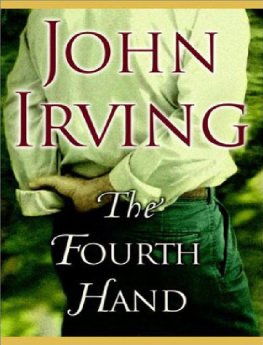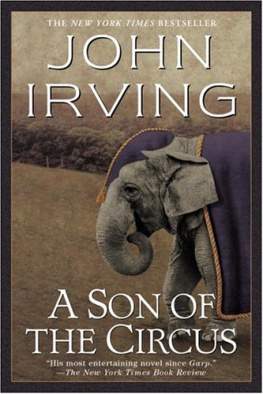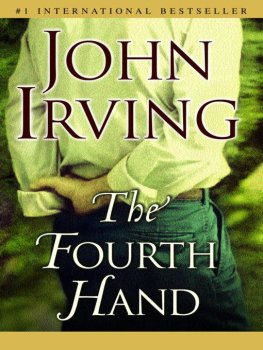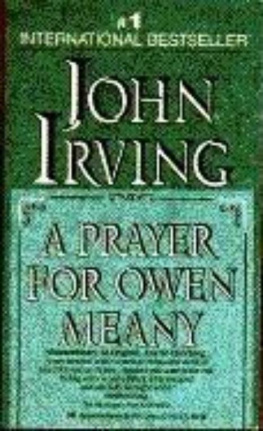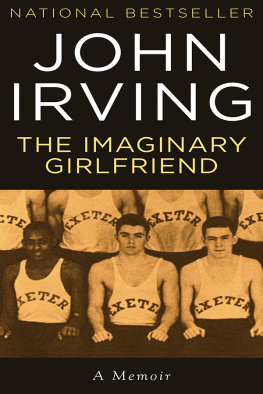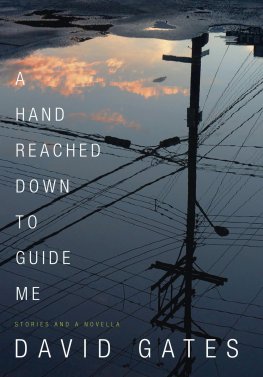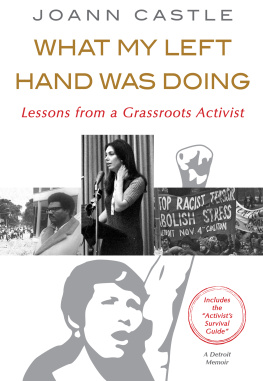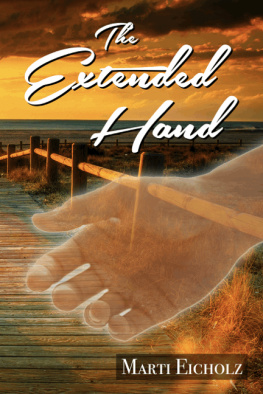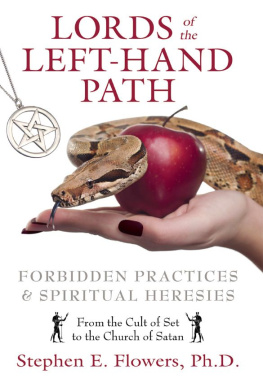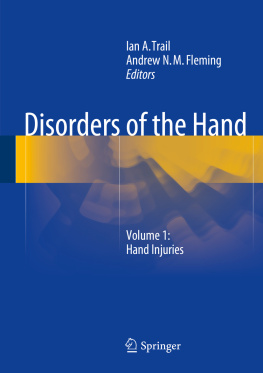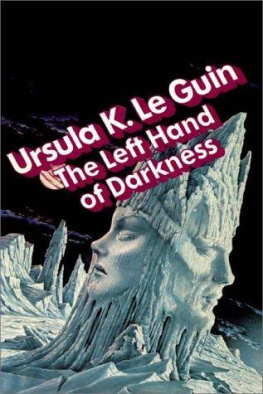
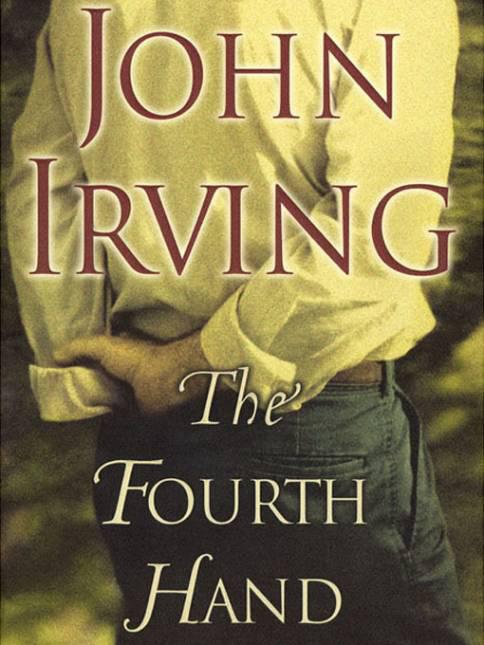
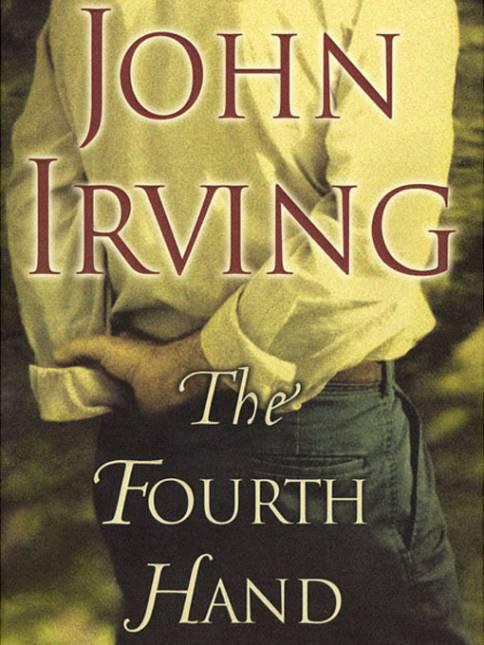
For Richard Gladstein
AndLasse Hallstrm
... a person who is looking for something doesnt travel very fast.
the telephone repairman in E. B. Whites Stuart LittleCONTENTS
1. The Lion Guy
2. The Former Midfielder
3. Before Meeting Mrs. Clausen
4. A Japanese Interlude
5. An Accident on Super Bowl Sunday
6. The Strings Attached
7. The Twinge
8. Rejection and Success
9. Wallingford Meets a Fellow Traveler10. Trying to Get Fired
11. Up North
12. Lambeau Field
CHAPTER ONE
The Lion Guy
I MAGINE A YOUNG MANon his way to a less-than-thirty-second eventthe loss of his left hand, long before he reached middle age.
As a schoolboy, he was a promising student, a fair-minded and likable kid, without being terribly original. Those classmates who could remember the future hand recipient from his elementary-school days would never have described him as daring. Later, in high school, his success with girls notwithstanding, he was rarely a bold boy, certainly not a reckless one. While he was irrefutably goodlooking, what his former girlfriends would recal as most appealing about him was that he deferred to them.
Throughout col ege, no one would have predicted that fame was his destiny. He was so unchal enging, an ex-girlfriend said.
Another young woman, whod known him briefly in graduate school, agreed. He didnt have the confidence of someone who was going to do anything special was how she put it.
He wore a perpetual but dismaying smilethe look of someone who knows hes met you before but cant recal the exact occasion. He might have been in the act of guessing whether the previous meeting was at a funeral or in a brothel, which would explain why, in his smile, there was an unsettling combination of grief and embarrassment.
Hed had an affair with his thesis adviser; she was either a reflection of or a reason for his lack of direction as a graduate student. Latershe was a divorce with a nearly grown daughtershe would assert: You could never rely on someone that good-looking. He was also a classic underachieverhe wasnt as hopeless as you first thought.
You wanted to help him. You wanted to change him. You definitely wanted to have sex with him.
In her eyes, there would suddenly be a kind of light that hadnt been there; it arrived and departed like a change of color at the days end, as if there were no distance too great for this light to travel. In noting his vulnerability to scorn, she emphasized how touching that was.
But what about his decision to undergo hand-transplant surgery? Wouldnt only an adventurer or an idealist run the risk necessary to acquire a new hand? No one who knew him would ever say he was an adventurer or an idealist, but surely hed been idealistic once. When he was a boy, he must have had dreams; even if his goals were private, unexpressed, hed had goals. His thesis adviser, who was comfortable in the role of expert, attached some significance to the loss of his parents when he was stil a col ege student. But his parents had amply provided for him; in spite of their deaths, he was financial y secure. He could have stayed in col ege until he had tenurehe could have gone to graduate school for the rest of his life. Yet, although hed always been a successful student, he never struck any of his teachers as exceptional y motivated. He was not an initiatorhe just took what was offered.
He had al the earmarks of someone who would come to terms with the loss of a hand by making the best of his limitations. Everyone who knew him had him pegged as a guy who would eventual y be content one-handed. Besides, he was a television journalist. For what he did, wasnt one hand enough? But he believed a new hand was what he wanted, and hed alertly understood everything that could go medical y wrong with the transplant. What he failed to realize explained why he had never before been much of an experimenter; he lacked the imagination to entertain the disquieting idea that the new hand would not be entirely his.
After al , it had been someone elses hand to begin with.
How fitting that he was a television journalist. Most television journalists are pretty smartin the sense of being mental y quick, of having an instinct to cut to the chase. Theres no procrastination on TV. A guy who decides to have handtransplant surgery doesnt dither around, does he? Anyway, his name was Patrick Wal ingford and he would, without hesitation, have traded his fame for a new left hand. At the time of the accident, Patrick was moving up in the world of television journalism.
Hed worked for two of the three major networks, where he repeatedly complained about the evil influence of ratings on the news. How many times had it happened that some CEO more familiar with the mens room than the control room made a marketing decision
that compromised a story? (In Wal ingfords opinion, the news executives had completely caved in to the marketing mavens.)
To put it plainly, Patrick believed that the networks financial expectations of their news divisions were kil ing the news.
Why should news shows be expected to make as much money as what the networks cal ed entertainment? Why should there be any pressure on a news division even to make a profit? News wasnt what happened in Hol ywood; news wasnt the World Series or the Super Bowl. News (by which Wal ingford meant real newsthat is, in-depth coverage) shouldnt have to compete for ratings with comedies or so-cal ed dramas. Patrick Wal ingford was stil working for one of the major networks when the Berlin Wal fel in November 1989. Patrick was thril ed to be in Germany on such a historic occasion, but the pieces he filed from Berlin were continual y edited downsometimes to half the length he felt they deserved. A CEO in the New York newsroom said to Wal ingford: Any news in the foreign-policy category is worth shit.
When this same networks overseas bureaus began closing, Patrick made the move that other TV journalists have made. He went to work for an al -news network; it was not a very good network, but at least it was a twenty-four-hour international news channel.
Was Wal ingford nave enough to think that an al -news network wouldnt keep an eye on its ratings? In fact, the international channel was overfond of minute-byminute ratings that could pinpoint when the attention of the television audience waxed or waned.
Yet there was cautious consensus among Wal ingfords col eagues in the media that he seemed destined to be an anchor. He was inarguably handsomethe sharp features of his face were perfect for televisionand hed paid his dues as a field reporter. Funnily enough, the enmity of Wal ingfords wife was chief among his costs.
She was his ex-wife now. He blamed the travel, but his then-wifes assertion was that other women were the problem. In truth, Patrick was drawn to first-time sexual encounters, and he would remain drawn to them, whether he traveled or not. Just prior to Patricks accident, thered been a paternity suit against him. Although the case was dismisseda DNA test was negativethe mere al egation of his paternity raised the rancor of Wal ingfords wife.
Beyond her then-husbands flagrant infidelity, she had an additional reason to be upset. Although shed long wanted to have children, Patrick had steadfastly refused. (Again he blamed the travel.)
Next page
